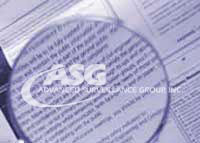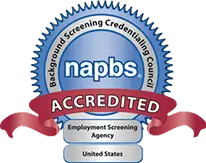Although we are Licensed Private Detectives and not related to law enforcement in any fashion, many people are interested in information about the work of police detectives. The following information is a rough description of the how law enforcement detectives work. The information presented below in the section “About detectives” is based on general observations of police detectives and private detectives and is not the guaranteed to be accurate or complete, but is only for informational purposes.
About Detectives
A detective is
- An officer of the police who performs criminal or administrative investigations,
- In some police departments, the lowest rank among such investigators (above the lowest rank of officers and below sergeants). Some departments have distinct levels of detectives, depending on their experiences and skills. New York City and Los Angeles both have three grades. A number of larger police departments have rank structures for their investigators that parallel the “street” police, such as Detective Sergeants and Detective Lieutenants,
- A civilian licensed to investigate information not readily available in public records (a private investigator, also called “P.I.” or, in a pun on “private i.”, private eye), or
- Informally and primarily in fiction, any unlicensed person who solves crimes, including historical crimes, or looks into records.
Becoming a detective
In most American police departments, a candidate for detective must have served as a uniformed officer for a period of one to five years before becoming qualified for the position. Prospective British police detectives must have completed two years as a uniformed officer before applying to join the Criminal Investigation Department. In European police systems, most detectives are university graduates who join directly from civilian life without first serving as uniformed officers. In fact, many European police experts cannot understand why British, American and Commonwealth police forces insist on recruiting their detectives from the ranks of uniformed officers, arguing that they do a completely different job and therefore require completely different training, qualifications, qualities and abilities. The opposing argument is that without previous service as a uniformed patrol officer a detective cannot have a great enough command of standard police procedures and problems and will find it difficult to work with uniformed colleagues.
Detectives obtain their position by competitive examination, covering such subjects as:
- Principles, practices and procedures of investigations
- Principles, practices and procedures of interviewing and interrogation
- Local criminal law and procedures
- Applicable law governing arrests, search and seizures, warrants and evidence
- Police department records and reports
- Principles, practices and objectives of courtroom testimony
- Police department methods and procedures
- Private detectives are licensed by the state in which they live after passing a competitive examination and a criminal background check. Some states, such as Maryland, require a period of classroom training as well.
Organization of detectives
The detective branch in most larger police agencies is organized into several squads or departments, each of which specializes in investigation into a particular type of crime or a particular type of undercover operation, which may include:
- Homicide
- Robbery
- Stolen vehicles
- Fraud
- Burglary
- Narcotics
- Forgery
- Criminal intelligence
- Sex crimes
- Street crime (mugging etc.)
- Computer crime
- Crimes against children
- Surveillance
- Arson
Techniques of detectives
Street work
Detectives have a wide variety of techniques available in conducting investigations. However, the majority of cases are solved by interrogation of suspects and witnesses, which takes time. In a policeman’s career as a uniformed officer and as a detective, a detective develops an intuitive sense of the plausibility of suspect and witness accounts. This intuition may fail at times, but usually is reliable.
Besides interrogations, detectives may rely on a network of informants they have cultivated over the years. Informants often have connections with persons a detective would not be able to approach formally.
In criminal investigations, once a detective has a suspect or suspects in mind, the next step is to produce evidence that will stand up in a court of law. The best way is to obtain a confession from the suspect, usually in exchange for a plea bargain for a lesser sentence. A detective may lie or otherwise mislead and may psychologically pressure a suspect into confessing, though in the United States suspects may invoke their Miranda rights.
Forensic evidence
Physical forensic evidence in an investigation may provide leads to closing a case.
Examples of physical evidence can be, but are not limited to:
- Fingerprinting of objects persons have touched
- DNA analysis
- Luminol to detect blood stains that have been washed
- Bloodstain pattern analysis
- Footprints or tire tracks
- Chemical testing for the presence of narcotics or expended gun propellant
- The exact position of objects at the scene of an investigation
Many major police departments in a city, county, or state, and the Federal Bureau of Investigation, maintain their own forensic laboratories.
Records investigation
Detectives may use public and private records to provide background information on a subject. These include:
- Fingerprint records. In the United States, the FBI maintains records of people who have committed felonies and some misdemeanors, all persons who have applied for a Federal security clearance, and all persons who have served in the U.S. armed forces
- Records of criminal arrests and convictions
- Photographs or mug shots, of persons arrested
- Motor vehicle records
- Credit card records and bank statements
- Hotel registration cards
- Credit reports
- Answer machine messages
Court testimony
Unless a plea bargain forestalls the need for a trial, detectives must testify in court about their investigation. They must seem reliable and credible to a jury, and must not give the impression of personal vindictiveness or cruelty. A detective’s background often comes into question in courtroom testimony. A famous example came in the murder trial of O. J. Simpson, when Detective Mark Fuhrman of the Los Angeles Police Department testified for the prosecution. Attorney F. Lee Bailey first asked Fuhrman if he had ever used the “n-word” . Fuhrman denied this. In court, Bailey produced taped interviews with Fuhrman using this offensive word.
Famous detectives
The detective story has been a popular genre in books, radio, television, and movies since the early 19th century. In many police drama series, detectives are depicted as being something of an elite, with most uniformed police officers deferring to them.
Famous fictional detectives include:
Police detectives of the entertainment world
- Detective Andy Sipowicz, played by Dennis Franz in the television series NYPD Blue
- Lennie Briscoe, played by Jerry Orbach in the television series Law & Order
- Sergeant Joe Friday, portrayed by Jack Webb and later by Ed O’Neill in the television series Dragnet
- Lieutenant Columbo, played by Peter Falk in the television series Columbo (and also some television movies)
- Detective Chief Inspector Jane Tennison, played by Helen Mirren in Prime Suspect.
- Detective Chief Inspector Morse, in the novels of Colin Dexter and played by John Thaw in Inspector Morse.
- Detective Inspector Jack Regan, also played by John Thaw, and Detective Sergeant George Carter, played by Dennis Waterman, in the television series The Sweeney.
- Thompson and Thomson, from the comic Tintin, created by Hergé
Private detectives of the entertainment world
- Adrian Monk, played by Tony Shalhoub
- Auguste Dupin, created by Edgar Allan Poe
- Hercule Poirot and Miss Jane Marple, both created by Agatha Christie
- Jim Rockford, created by Roy Huggins and Stephen J. Cannell, and portrayed by James Garner in the television series The Rockford Files
- Thomas Sullivan Magnum, played by Tom Selleck in the television series Magnum P.I.
- Philip Marlowe, created by Raymond Chandler
- Sam Spade, created by Dashiell Hammett and portrayed on film by Humphrey Bogart
- Sherlock Holmes, created by Arthur Conan Doyle










